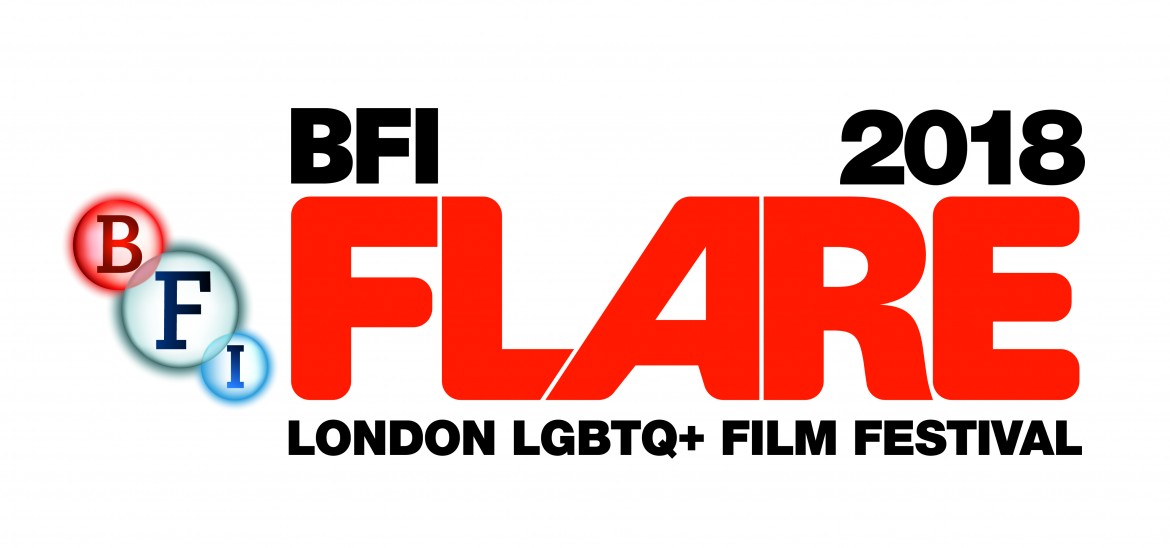Into Film Clubs
Find out everything you need to know about starting an Into Film Club.



Flare, the BFI's annual LGBTQ+ festival took place from 21 March - 1 April, providing a fantastic showcase for some of the most significant queer cinema from around the world of the past year, giving a platform to emerging filmmaking voices, and an opportunity for international LGBTQ+ issues to be discussed in an open, engaging forum.
Following what many considered to be a landmark year for gay cinema in 2017, the scope and audience reach for LGBTQ+ centred stories is broader than ever. Many of this year's selection reflected that, not least Love, Simon, the first mainstream coming-of-age studio film to feature a gay protagonist (which we'll be writing about specifically upon its release!), whilst others were defiantly esoteric and politically motivated.
Michael and Joe from our curation team went along to Flare and have picked out some of their highlights for younger audiences.
The first mainstream Japanese feature to have a trans protagonist, this intimate, warm and engaging family drama recalls the work of acclaimed director Hirokazu Kore-eda. After 11 year-old Tomo's mother walks out to go off with a new man (not for the first time), Tomo goes to stay with her uncle and his girlfriend Rinko, a trans woman who is looking after Tomo's grandmother in a local care home. Although their relationship is initially distant, Tomo and Rinko develop a close bond, awakening a yearning in Rinko to be a mother and provide Tomo with some of the love that appears to be absent from her life. Meanwhile, a boy in Tomo's class is shyly trying to reach out to her as they grapple with their own gender identity. Gentle and calm, but emotionally nuanced, this is a wonderful story about loneliness, identity and unconventional family units.
This engrossing South African drama tells the story of a young city man who is taken back to his father's rural village to undergo an initiation designed to turn him into a "real man", beginning with a ritual circumcision and taking place over several subsequent weeks as the wounds heal and the young men "prove themselves". During this process, full of long-standing traditions as well as intense displays of hyper-masculinity, the closeted man finds comfort and support in a local caregiver who returns to the village every year with the purpose of rekindling his romance with his closest childhood friend. Taut and unsettling, this is nevertheless a fascinating, culturally sensitive look at a disturbing practice that continues to exist.
Actor Rupert Everett makes his directorial debut in this retelling of the final years of Oscar Wilde's life, following his release from prison after being incarcerated for "gross indecency". Also writing the script, and flamboyantly playing Oscar himself, this is undoubtedly a labour of love for Everett, taking over ten years to complete. Framed by Wilde's own fable, 'The Happy Prince', recounted to his two sons from his sick bed, the film follows Wilde as he travels around Europe with his wealth diminished and his health rapidly deteriorating. Dealing with Wilde's complex relationship with his dashing but cruel on-off lover, Bosie, the film is at turns witty, camp and histrionic, but also heartfelt and moving, balancing these contrasting tones in impressive fashion.
Tackling the topical issue of LGBT players in sport - an issue particularly within football - this film explores the many facets of what it means to be gay in a media-focused, locker room culture. When a new player, Leon Saldo, joins the U21s of real-life Swiss team Young Boys, he begins to fall for teammate, roommate and strike partner, Mario. Their relationship develops on and off the pitch, but Leon is more keen to be honest and open, whereas Mario has reservations about how to live his lifestyle in the public eye. When an anonymous accusation is made about the pair, their agents strongly suggest that denial is the way to go, escalating the tension between the duo. Mario explores coming out, football culture and identity in an honest and fresh way.
This story is full of urgency and energy, telling the tale of the Paris branch of activist organisation ACT-UP and its members during the height of the AIDS crisis. New member Nathan quickly becomes initiated into the ways of the group who plan protests, rallies and other demonstrations intended to cause maximum disruption and media attention. As he becomes closer with one of the group's leading voices, HIV-positive Sean, the two embark on a sexual and romantic relationship, but they face a race against time to instigate action and receive treatment before it's too late. 120 BPM (Beats Per Minute) celebrates body, mind and spirit, posing complex questions in relation to democracy and debate, and is set to quickly become a modern queer classic.
This documentary focuses on the efforts of Mississippi locals who attempt to organise the first Pride events in their towns. Set against the backdrop of the incoming Trump presidency, gay bar owner Lynn uses the inauguration as a catalyst, deciding to establish a dedicated day of celebration in the summer months with the help of her friends in arranging such a spectacle. Meanwhile, in another part of the state, a committee already have plans underway for a Black Pride event, but whether a collaboration between the two groups is possible, or even desirable, remains to be seen. The documentary provides a timely examination of race relations, community and leadership in small-town America.
Viewing 4 of 4 related items.

Get in touch with your article ideas for the News and Views section.